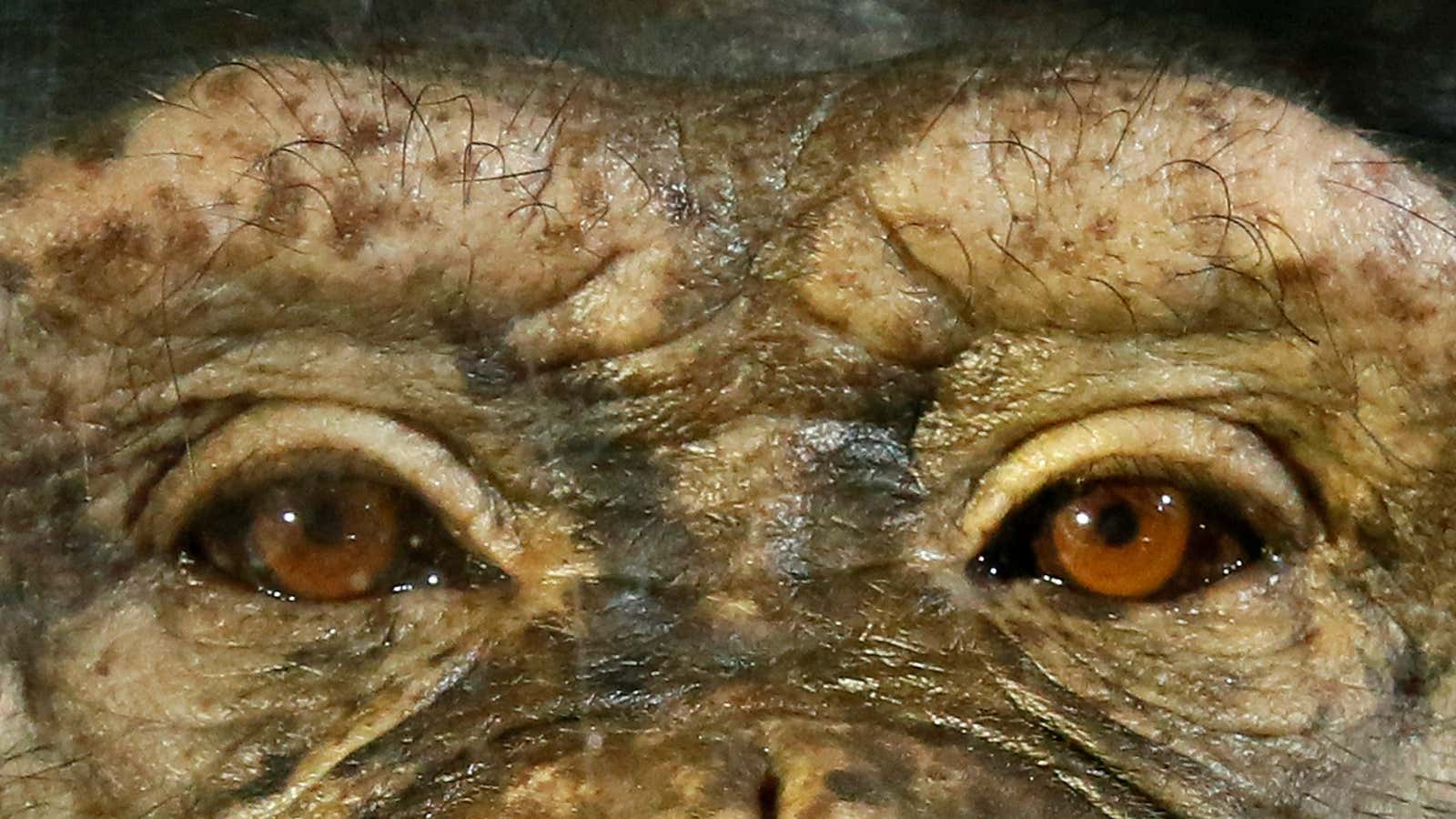A spate of sudden deaths among a community of chimpanzees in Uganda was caused by the common cold, passed on by humans.
A group of scientists investigating a 2013 outbreak in Kibale National Park discovered that a human cold virus was responsible for the deaths of five chimps out of a community of 56. Releasing their findings this week in the Emerging Infectious Diseases journal, the researchers say it was “completely unknown” that the human virus is deadly for chimps.
“This was an explosive outbreak of severe coughing and sneezing,” says Tony Goldberg, a professor in the University of Wisconsin-Madison’s School of Veterinary Medicine who studied the outbreak.
The February 2013 outbreak was discovered after the death of a 2-year-old chimp named Betty, who scientists had been tracking. A Ugandan veterinarian was on hand to perform a postmortem in the field, obtaining the samples that eventual lead to the discovery. (The other chimps that died were all adults, up to 57 years old.)
The rhinovirus is the most common viral infection in humans and is responsible for symptoms known as the common cold. Rhinovirus C, the strain that caused the chimps’ deaths, was only discovered in 2010. The strain is known to affect children most severely, often as a precursor to asthma, said James Gern, one of the researchers who studied the outbreak. “It was surprising to find it in chimpanzees, and it was equally surprising that it could kill healthy chimpanzees outright,” said Goldberg.
Outbreaks of respiratory diseases in chimps are not uncommon and mostly go undiagnosed. DNA testing of the Kibale chimps, compared to existing DNA samples revealed that the species is generally more susceptible to the rhinovirus C strain.
Genome mapping has already shown that some people are more receptive to certain strains of the cold. In this case, it’s also shown that the virus certainly originated from a human host—as people continue to encroach on chimp habitats as populations grow. It’s shown that growing human populations pose an even greater threat to the wild.
